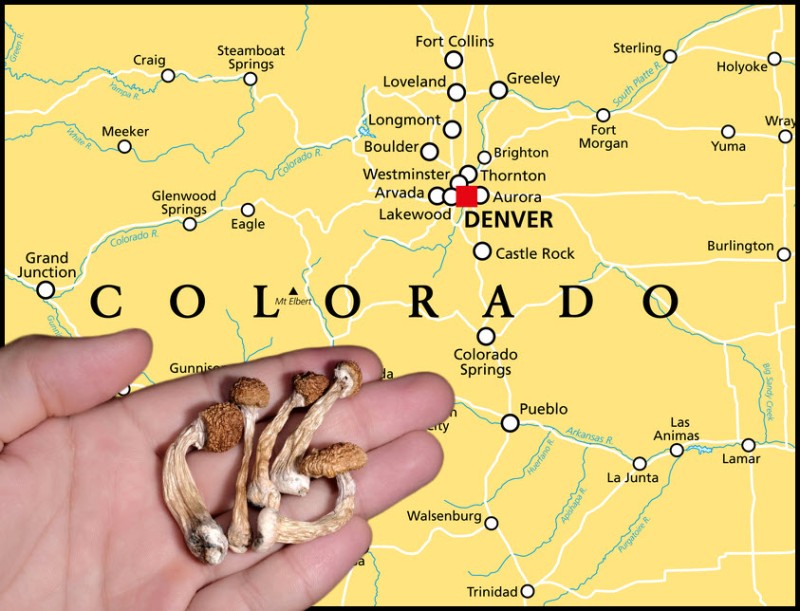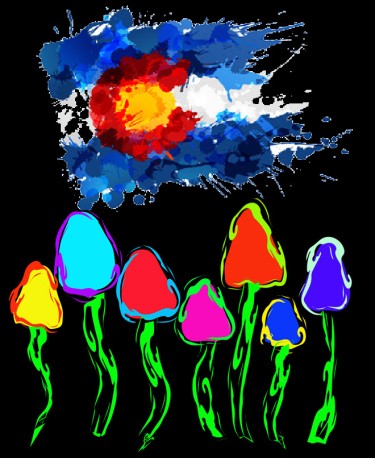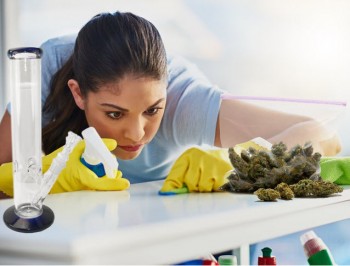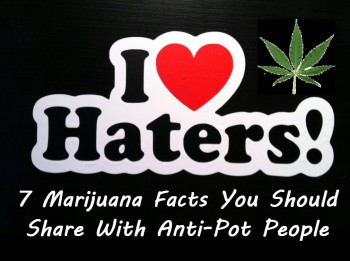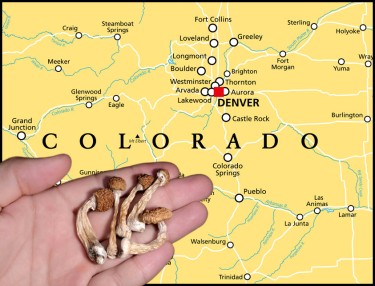
Colorado's trailblazing journey toward the legalization of psychedelics has reached a significant turning point with the formal establishment of a complete set of laws for the state's burgeoning psilocybin business. After nearly two years of meticulous planning, this regulatory framework allows businesses to engage in the manufacturing, distribution, and therapeutic use of mescaline, psilocin, ibogaine, DMT, and magic mushrooms as allowed by Proposition 122.
With this clearance, Colorado becomes one of the several states that acknowledge the possible medical advantages of psychedelics. The recently enacted regulations, as noted by the Green Market Report, provide a regulated operating environment for enterprises by outlining precise licensing processes for producers of products, therapy centres, and mushroom farmers.
These therapy clinics are critical to the emerging sector. They will provide participants with the opportunity to experience the effects of psychedelics while under the cautious observation of state-certified specialists. This structure is intended to assure both safety and efficacy, with tight guidelines in place to avoid overuse. Importantly, the sale of psychedelic compounds for home use is not permitted, and usage is limited to these supervised settings.
Governor Jared Polis has been an outspoken supporter of the new psychedelics legislation, praising Colorado's natural medicine leadership in his State of the State address earlier this year. Polis praised Colorado's heritage as the first state to legalize recreational cannabis, as well as its ongoing role in establishing national drug policy reform norms.
Expanding Product Options with Controlled Potency
The decision also specifies what kinds of products producers are permitted to sell. Apart from dehydrated psilocybin mushrooms, manufacturers are permitted to make a wide range of infused goods, such as tea bags, capsules, chocolates, gummies, tablets, and tinctures. This wide array of choices satisfies consumers' increasing desire for non-traditional consumption methods that accommodate a variety of tastes and medical requirements.
However, the state has placed tight restrictions on these goods. Ten milligrams of psilocin, the primary hallucinogenic ingredient in magic mushrooms, are considered to be one serving. In its dried form, this is equivalent to around one gram per dosage. The legal limits for edibles allow for a maximum of 50 milligrams of psilocin or 5 milligrams of psilocybin mushrooms. The purpose of these restrictions is to regulate the potency of the substance and reduce the possibility of negative consequences.
Beyond product regulations, the new rules specify requirements for the physical locations of healing centers. These centers may be integrated into larger healthcare facilities or situated alongside mushroom grow sites or manufacturing plants. However, the regulations require that these operations be clearly separated within the facility to maintain distinct boundaries between different activities.
Pioneering Regulatory Standards for Psychedelics
For Colorado's regulatory agencies, which have carefully weighed the possible advantages of psychedelics against worries about public safety, the adoption of these regulations represents a major turning point. This framework takes a cautious but progressive approach to integrating psychedelics into the healthcare system, and it is anticipated that other states considering legislation along these lines would use it as a model.
The top cannabis regulator in the state, Dominique Mendiola, reflected on the ten years that Colorado has gone without legalizing marijuana and noted how the state's new psychedelics program is being developed using the lessons acquired from the legalization of marijuana. During this transformation, Mendiola is essential. He is the senior director of the newly formed Natural Medicine Division and the Marijuana Enforcement Division (MED).
"We're leveraging the experience and lessons learned [from marijuana] to inform the process of establishing an entirely new program," Mendiola explained during a podcast interview with Weed Wonks. Her approach emphasizes adaptability, a key principle that has been essential in managing the evolving landscape of cannabis regulation.
Tailoring Regulation: Lessons from Cannabis, Adapted for Psychedelics
While drawing on Colorado’s experience with marijuana regulation, Mendiola emphasized the differences between overseeing cannabis and psychedelics. "We’re not suggesting that we’ll just apply our marijuana rulebook here," she clarified. The forthcoming psilocybin program, which will open its first round of business license applications by December 31, will operate under its own distinct guidelines. Unlike cannabis businesses, psilocybin enterprises will not sell psychedelics directly to consumers. Instead, the law requires the establishment of state-regulated psilocybin "healing centers," where clients can use the substance in a supervised environment.
Mendiola stressed that this tailored approach is necessary because people use cannabis and psychedelics for different reasons, which means the psilocybin program is expected to be smaller in scale than Colorado's extensive marijuana market.
One key lesson Mendiola brings from her experience in cannabis regulation is the importance of stakeholder engagement. The Natural Medicine Division has made it a priority to hold listening sessions and town halls across the state, encouraging public input on the new rules. "We have needed to be very deliberate about that when we engage in this work," Mendiola noted, emphasizing the ongoing efforts to involve local jurisdictions and federally recognized tribes in these discussions.
Mendiola also pointed out that while the initial rules have been finalized, her office is ready to make adjustments if necessary. "Are we seeing issues that require emergency rulemaking? Are there gaps we didn’t anticipate that we need to address?" she asked, signaling a proactive approach to potential challenges
Bottom Line
Colorado's new psilocybin industry represents a significant step in the state's leadership in drug policy reform, building on its pioneering role in cannabis legalization. The state has developed a comprehensive regulatory framework under Proposition 122, allowing for the controlled manufacturing, distribution, and therapeutic use of psychedelics like psilocybin, mescaline, and DMT. This framework emphasizes safety and efficacy, with strict guidelines that limit usage to supervised settings in state-regulated "healing centers."
The regulations also set clear standards for product potency, aiming to minimize risks associated with psychedelic use. Manufacturers are permitted to create a variety of infused products, but each comes with precise dosage limits to ensure consumer safety. By restricting sales for home use and focusing on therapeutic environments, Colorado seeks to balance access to potential medical benefits with public safety concerns.
As other states consider similar legislation, Colorado's approach, which includes extensive stakeholder engagement and adaptability in rulemaking, is likely to serve as a model. This cautious yet forward-thinking strategy underscores the state's commitment to integrating psychedelics into healthcare responsibly, setting the stage for a new era in natural medicine.

